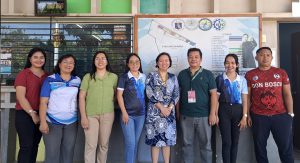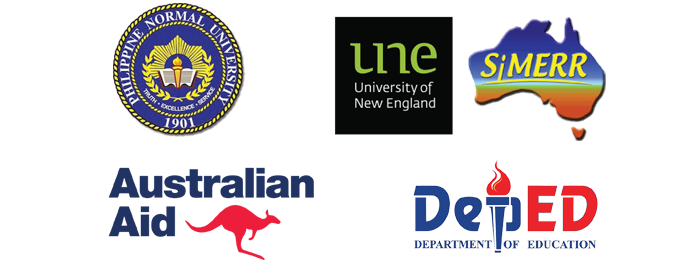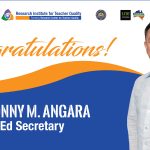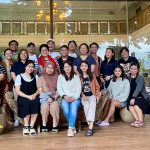RITQ conducts M&E of MATATAG curriculum in Regions 7, 12 and CARAGA

RITQ senior program manager Dr. Maria Teresa Manicio (5th from left) meets with the school personnel of the Liloan National High School in Cebu led by the school head Mr. Rey Gerolaga (3rd from right).
RITQ visited 15 schools across the Central Visayas, Central Mindanao, and CARAGA regions as part of the project on the development of learning resource package in support of the MATATAG curriculum of the Department of Education, and the monitoring and evaluation of its pilot implementation.
The schools visited were the following:
Region 7 (Central Visayas):
- Tindog Integrated School
- Tabogon Central Elementary School
- San Fernando North Central Elementary School
- Dumanjug National High School
- Liloan National High School Ext. Don Bosco
Region 12 (Central Mindanao):
- Alegria National High School
- Alegria Central Elementary School
- Lamlifew Integrated School
- Mlang Pilot Elementary School
- San Vicente National High School
CARAGA:
- Socorro National High School
- Suyangan Elementary School
- Baobaoan Integrated School
- Santiago Elementary School
- Pedro D. Ducano National High School
To support DepEd’s pilot implementation of the MATATAG Curriculum mandated by Memorandum No. 54, s. 2023, RITQ is developing two essential resources based on the ongoing monitoring and evaluation of the MATATAG curriculum pilot implementation—a training design to integrate Science of Learning principles into their instructional planning and delivery, and a primer on conducting collaborative expertise sessions.
The project team, led by RITQ senior program managers Dr. Brando Palomar and Dr. Maria Teresa Manicio, employed a multi-faceted approach to gather data. This included classroom observations, interviews, and focus group discussions with teachers and school heads. The activities aimed to provide empirical evidence on the understanding of the new curriculum, its components, and the support and resources required for its effective implementation.
The activity involved interviews with school heads, which sought their valuable insights into the preparations, challenges, concerns, and perspectives regarding the MATATAG curriculum pilot implementation. These discussions highlighted the administrative and logistical hurdles faced by schools and the strategies employed to overcome them.
Classroom observations documented the utilization of Learning Resource Packages (LRPs). Post-interview sessions with teachers allowed them to describe their experiences, share perspectives, and provide feedback on the pilot implementation of the new curriculum. This approach helped in identifying practical issues and successes directly from the classroom environment.
Focus group discussions gathered comprehensive data on teachers’ preparations, practices, and challenges related to the pilot implementation. These sessions facilitated an open exchange of ideas and experiences among educators, fostering a collaborative environment for problem-solving and innovation. (RITQ Communications)
https://www.ritq.ph/?p=5012NewsDepEd,MATATAG






